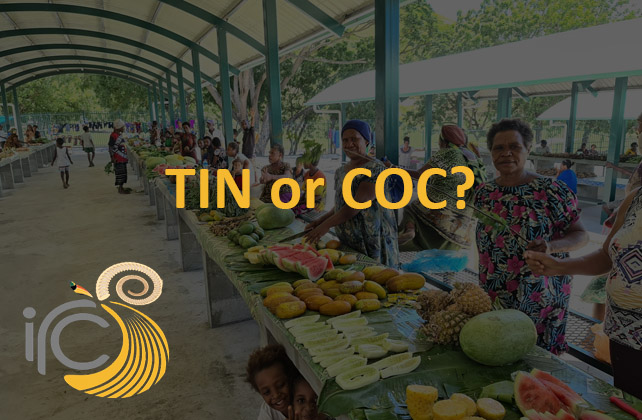info@smartbizpacific.com

Understanding the Difference Between Tax Identifier Number (TIN) and Certificate of Compliance (COC) in Papua New Guinea
In Papua New Guinea (PNG), businesses are required to comply with taxation laws enforced by the Internal Revenue Commission (IRC). Two essential documents that businesses obtain from the IRC are the Tax Identifier Number (TIN) and the Certificate of Compliance (COC). While both TIN and COC are related to tax compliance, they serve different purposes. In this blog, we will explore the distinctions between TIN and COC, their significance, and how they contribute to the operations and compliance of businesses in PNG.
Tax Identifier Number (TIN):
The TIN is a unique identification number assigned to individuals, partnerships, and companies by the IRC. It serves as a reference for tax purposes and enables the IRC to identify and track taxpayers. The primary purpose of the TIN is to establish the taxpayer’s identity and facilitate efficient tax administration.
Key aspects of TIN:
- Identification and registration: Individuals and businesses are required to apply for a TIN upon registration with the IRC. The TIN is assigned based on the provided information, including business details, legal entity type, and ownership structure.
- Tax filing and reporting: The TIN is used in all tax-related matters, such as filing tax returns, making payments, and submitting various tax reports to the IRC. It is essential to include the TIN on relevant documents, such as invoices and financial statements, to ensure accurate identification and tracking.
- Compliance monitoring: The TIN allows the IRC to monitor tax compliance effectively. It helps in tracking tax obligations, conducting audits, and identifying potential discrepancies or non-compliance. By linking financial activities to TIN records, the IRC ensures transparency and accountability in tax reporting.
Certificate of Compliance (COC):
The Certificate of Compliance (COC) is a document issued by the IRC to businesses that have fulfilled their tax obligations and complied with relevant tax laws and regulations. It serves as proof that a business is in good standing with the IRC in terms of tax compliance.
Significance of COC:
- Verification of compliance: The COC confirms that a business has met its tax obligations, such as timely filing of tax returns and payment of taxes. It validates compliance with tax laws and regulations enforced by the IRC.
- Legitimacy for transactions: Some activities, such as bidding for government contracts, may require a valid COC. It demonstrates that a business is eligible to engage in specific transactions and meets the necessary compliance standards.
- Enhanced credibility: Holding a COC enhances a business’s reputation and credibility. It signals that the business operates responsibly, fulfills its tax obligations, and complies with legal requirements, thereby instilling trust among clients, partners, and stakeholders.
Differences between TIN and COC:
- Purpose: The TIN is primarily a unique identification number used for tax administration and tracking taxpayer activities, while the COC is a document that certifies a business’s compliance with tax laws and regulations.
- Issuance: The TIN is assigned to individuals and businesses upon registration with the IRC, whereas the COC is issued by the IRC after verifying a business’s compliance with tax obligations.
- Information conveyed: The TIN provides identification and reference for tax purposes, enabling the IRC to track and monitor taxpayer activities. In contrast, the COC confirms a business’s compliance status and serves as evidence of meeting tax obligations.
In Papua New Guinea, the Tax Identifier Number (TIN) and Certificate of Compliance (COC) are two distinct components of tax compliance. While the TIN serves as a unique identification number for taxpayers and aids tax administration, the COC validates a business’s compliance with tax laws and regulations. By understanding the differences between TIN and COC, businesses can navigate the requirements effectively, ensure compliance, and contribute to the transparent and responsible growth of PNG’s economy.

Great post.
I’ve just registered a company with IPA and ask the following questions,
1. Do I apply for TIN and COC at the same time?
2. What other documents do I need to provide to IRC for that?
3. How much do these cost?
Thankyou.
Hi Frederik, apologies for the tardiness. Email us on info@smartbizpacific.com and we’ll assist you.
I submitted my application for TIN in November last year and have not received it yet. Please advise how long it takes to get it process?
It usually takes 1-2 weeks if you lodge it through an agent like us SmartBiz Pacific. You need to keep following up.